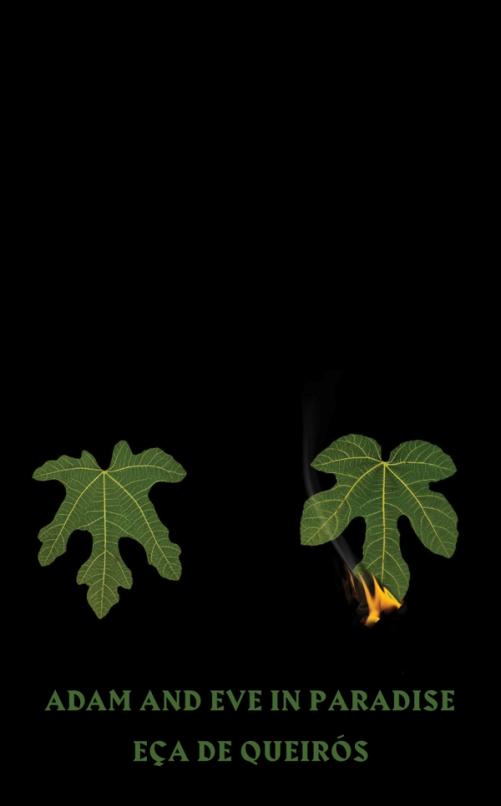Adam and Eve in Paradise by Eça de Queirós

Then began the abominable days of Paradise. Our Parents’ tireless, desperate efforts were devoted entirely to surviving in the midst of a Nature that was ceaselessly, furiously plotting their destruction. And Adam and Eve spent those days—which Semitic texts celebrate as delightful—always trembling, always whimpering always fleeing! The Earth was very much a work in progress, and the Divine Energy, which was still in the process of creating it, was constantly making emendations, changing its mind so often that a place, which, at dawn, had been covered by a forest had become, by night, a lagoon in which the already ailing Moon had come to study its own pale face. (33)
And danger did not come only from the starving hoards of carnivores, but from the slow, sated, idle herbivores, the aurochs, the wild oxen, the stags, who would happily gore of trample our Parents out of sheer stupidity, simply because they did not like the look or smell of them. To which were added those who killed in order not to be killed themselves, because life in Paradise was ruled by the laws of Fear, Hunger and Fury. (38-9)
This is not your father’s story of creation in Genesis (1 and/or 2), to borrow an idiom, as you can probably tell from the above quotes. Eça de Queirós begins with James Ussher’s literal dating of creation but quickly puts his own spin on what happened during the early days of the earth. Adam descends from the trees and begins to develop his own consciousness as he figures out how to survive in such a hostile environment. Dinosaurs still roam the earth, although they are on their way out, as Adam evolves from his initial Neanderthal appearance. There is no Eden, at least in the sense of a place of pleasure and delight.
With Eve, who appears one morning by his side, our “Parents” slowly achieve awareness and understanding to not just survive but improve their lot. The Tree of Knowledge makes only a cameo appearance, in which Eça de Queirós praises Eve’s achievement in laying “the foundation stones on which Humanity is built.” (“Adam would have preferred to eat that very juicy Serpent. He didn’t believe in fruit that could make you Godlike and Wise. After all, he had eaten plenty of fruit from the trees and remained as ignorant and beast-like as the bear or the aurochs.” 49-50) Most of the book details their fight for survival and their initial steps towards civilization.
I was definitely reminded of Mark Twain’s Extracts from Adam’s Diary, but with Eça de Queirós’ unique combination of satire and irony as well as a third-person point of view. Probably the closest style of his other Eça de Queirós’ works I’ve read would be The Relic, but with a touch of the moralizing similar to The City and the Mountains at the end. (Although the bulk of the Adam and Eve in Paradise provides a contradiction to paradise in the countryside, at least until some civilization is achieved. I’ll post on The City and the Mountains before too long to provide more detail on that theme.)
Extremely short (less than 60 pages), but a fun read that hasn’t been available in English until now. New Directions publisher’s page can be found here.